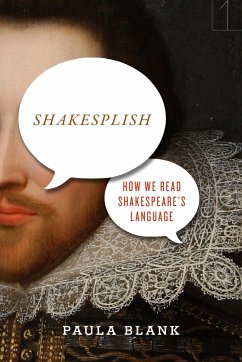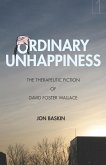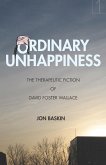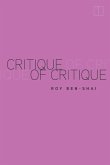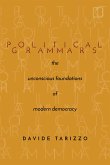- Broschiertes Buch
- Merkliste
- Auf die Merkliste
- Bewerten Bewerten
- Teilen
- Produkt teilen
- Produkterinnerung
- Produkterinnerung
This book on Shakespeare's language is the first to explore how we modern American or English-speaking readers hear, understand, fail to understand, are amused, disturbed, bored, moved, and challenged by it today.
Andere Kunden interessierten sich auch für
![Shakespeare's Mad Men Shakespeare's Mad Men]() Richard van OortShakespeare's Mad Men35,99 €
Richard van OortShakespeare's Mad Men35,99 €![Ordinary Unhappiness Ordinary Unhappiness]() Jon BaskinOrdinary Unhappiness27,99 €
Jon BaskinOrdinary Unhappiness27,99 €![Ordinary Unhappiness Ordinary Unhappiness]() Jon BaskinOrdinary Unhappiness118,99 €
Jon BaskinOrdinary Unhappiness118,99 €![Critique of Critique Critique of Critique]() Roy Ben-ShaiCritique of Critique34,99 €
Roy Ben-ShaiCritique of Critique34,99 €![Émigrés Émigrés]() Richard ScholarÉmigrés24,99 €
Richard ScholarÉmigrés24,99 €![Political Grammars Political Grammars]() Davide TarizzoPolitical Grammars36,99 €
Davide TarizzoPolitical Grammars36,99 €![Totalitarianism Totalitarianism]() Simona FortiTotalitarianism32,99 €
Simona FortiTotalitarianism32,99 €-
-
-
This book on Shakespeare's language is the first to explore how we modern American or English-speaking readers hear, understand, fail to understand, are amused, disturbed, bored, moved, and challenged by it today.
Hinweis: Dieser Artikel kann nur an eine deutsche Lieferadresse ausgeliefert werden.
Hinweis: Dieser Artikel kann nur an eine deutsche Lieferadresse ausgeliefert werden.
Produktdetails
- Produktdetails
- Square One: First-Order Questions in the Humanities
- Verlag: Stanford University Press
- Seitenzahl: 232
- Erscheinungstermin: 20. November 2018
- Englisch
- Abmessung: 228mm x 154mm x 20mm
- Gewicht: 358g
- ISBN-13: 9781503607576
- ISBN-10: 1503607577
- Artikelnr.: 50911918
- Herstellerkennzeichnung
- Libri GmbH
- Europaallee 1
- 36244 Bad Hersfeld
- gpsr@libri.de
- Square One: First-Order Questions in the Humanities
- Verlag: Stanford University Press
- Seitenzahl: 232
- Erscheinungstermin: 20. November 2018
- Englisch
- Abmessung: 228mm x 154mm x 20mm
- Gewicht: 358g
- ISBN-13: 9781503607576
- ISBN-10: 1503607577
- Artikelnr.: 50911918
- Herstellerkennzeichnung
- Libri GmbH
- Europaallee 1
- 36244 Bad Hersfeld
- gpsr@libri.de
Paula Blank (1959-2016) was Margaret L. Hamilton Professor of English at the College of William and Mary and the author of Broken English (1996) and Shakespeare and the Mismeasure of Man (2006).
Contents and Abstracts
1"Shakespeare in Modern English"
chapter abstract
This chapter lays the groundwork for approaching Shakespeare's English from
the perspective of our own, drawing on translation theory, second-language
acquisition theory, and performance studies. It destabilizes the argument
over whether Shakespeare should or should not be translated into modern
English by posing the theory that Shakespeare's English, in our reception
of it, has become an "interlanguage," a uniquely modern hybrid.
2"Beautiful"
chapter abstract
This chapter attempts to account for our continuing sense of Shakespeare's
language as "beautiful" in an age in which the traditional aesthetic
categories of "beautiful" and "sublime" have given way to new categories,
such as "cute" or "interesting." Starting from the premise that, when it
comes to Shakespeare, we are closer to eighteenth-century critics than
twenty-first century ones, this chapter posits that our best chance of
determining what it is that makes Shakespeare's language beautiful lies in
considering what happens in the moment we make contact with his texts, the
moment of our interlinguistic participation. Focusing on our experience of
belatedness in relation to Shakespeare's Early Modern diction and syntax,
this chapter examines various examples of Shakespeare's beautiful-and not
so beautiful-language in order to determine the source of our aesthetic
pleasure.
3"Sexy"
chapter abstract
This chapter shows that Shakespeare's language is more openly sexual, when
it is sexual, than our Modern English expectations have led us to believe.
Early Modern English lacked "clinical" terms for male and female sexual
organs and for the act of sexual intercourse itself. When Shakespeare uses
terms like "sport" or "dally" for sex, he is speaking directly rather than
euphemistically. This chapter argues that our interest in Shakespeare's
sexual language actually reveals our ambivalence toward his original sexual
frankness: We prefer sex in Shakespeare be hidden, so that we can find it
out for ourselves. For us, Shakespeare's sexual language is, in itself, a
metaphor for our idea of Shakespeare's text as coded, hiding some essential
"truth."
4"Funny"
chapter abstract
This chapter explores the "funny" and "unfunny" effects of Modern English
on Shakespeare's comedy. Situating Shakespeare's jokes within the context
of several dominant, enduring theories of humor in the Western
tradition-including "superiority" theories, "arousal" or "release"
theories, and "incongruity" theories-the chapter explains why and how it is
that some of Shakespeare's comedy falls flat to contemporary ears while
other instances have become more funny as a result of the gap between our
English and Shakespeare's.
5"Smart"
chapter abstract
This chapter examines Shakespeare's "intelligence effects," the ways in
which his language gives us a sense of depth and acuity. Shakespeare did
not use the word "intelligence" in the way that we do: in Early Modern
English, the key terms were "wit" and "discourse of reason." Often, modern
readers find Shakespeare's characters' "intelligent" because they
demonstrate inwardness and self-consciousness; in the process, however, we
miss their many failures of logic, which for Shakespeare's audience would
have indicated a failure of reason. The chapter further argues that
Shakespeare's poetic syntax makes him sound "smarter" to us.
6"Shakespeare as Modern English"
chapter abstract
This chapter focuses on Modern English phrases that derive from
Shakespeare's Early Modern English, but have been adapted to more recent
forms of the vernacular, either in meaning or form. Modern English includes
many idioms that originate in Shakespeare, such as "hoist with his own
petard," "one fell swoop," and "primrose path." This chapter divides such
idioms into three categories: those whose literal meaning is now obscure to
us, those that we hear simply as Modern English, and those that sound
antiquated and clichéd. Finally, the chapter returns to our modern
obsession with identifying idioms as Shakespearean. Cited so often, in so
many contexts, over so many centuries, these phrases have become their own
particular suborder of language. They are far more ours than his, not
Shakespeare but "Shakespeare."
1"Shakespeare in Modern English"
chapter abstract
This chapter lays the groundwork for approaching Shakespeare's English from
the perspective of our own, drawing on translation theory, second-language
acquisition theory, and performance studies. It destabilizes the argument
over whether Shakespeare should or should not be translated into modern
English by posing the theory that Shakespeare's English, in our reception
of it, has become an "interlanguage," a uniquely modern hybrid.
2"Beautiful"
chapter abstract
This chapter attempts to account for our continuing sense of Shakespeare's
language as "beautiful" in an age in which the traditional aesthetic
categories of "beautiful" and "sublime" have given way to new categories,
such as "cute" or "interesting." Starting from the premise that, when it
comes to Shakespeare, we are closer to eighteenth-century critics than
twenty-first century ones, this chapter posits that our best chance of
determining what it is that makes Shakespeare's language beautiful lies in
considering what happens in the moment we make contact with his texts, the
moment of our interlinguistic participation. Focusing on our experience of
belatedness in relation to Shakespeare's Early Modern diction and syntax,
this chapter examines various examples of Shakespeare's beautiful-and not
so beautiful-language in order to determine the source of our aesthetic
pleasure.
3"Sexy"
chapter abstract
This chapter shows that Shakespeare's language is more openly sexual, when
it is sexual, than our Modern English expectations have led us to believe.
Early Modern English lacked "clinical" terms for male and female sexual
organs and for the act of sexual intercourse itself. When Shakespeare uses
terms like "sport" or "dally" for sex, he is speaking directly rather than
euphemistically. This chapter argues that our interest in Shakespeare's
sexual language actually reveals our ambivalence toward his original sexual
frankness: We prefer sex in Shakespeare be hidden, so that we can find it
out for ourselves. For us, Shakespeare's sexual language is, in itself, a
metaphor for our idea of Shakespeare's text as coded, hiding some essential
"truth."
4"Funny"
chapter abstract
This chapter explores the "funny" and "unfunny" effects of Modern English
on Shakespeare's comedy. Situating Shakespeare's jokes within the context
of several dominant, enduring theories of humor in the Western
tradition-including "superiority" theories, "arousal" or "release"
theories, and "incongruity" theories-the chapter explains why and how it is
that some of Shakespeare's comedy falls flat to contemporary ears while
other instances have become more funny as a result of the gap between our
English and Shakespeare's.
5"Smart"
chapter abstract
This chapter examines Shakespeare's "intelligence effects," the ways in
which his language gives us a sense of depth and acuity. Shakespeare did
not use the word "intelligence" in the way that we do: in Early Modern
English, the key terms were "wit" and "discourse of reason." Often, modern
readers find Shakespeare's characters' "intelligent" because they
demonstrate inwardness and self-consciousness; in the process, however, we
miss their many failures of logic, which for Shakespeare's audience would
have indicated a failure of reason. The chapter further argues that
Shakespeare's poetic syntax makes him sound "smarter" to us.
6"Shakespeare as Modern English"
chapter abstract
This chapter focuses on Modern English phrases that derive from
Shakespeare's Early Modern English, but have been adapted to more recent
forms of the vernacular, either in meaning or form. Modern English includes
many idioms that originate in Shakespeare, such as "hoist with his own
petard," "one fell swoop," and "primrose path." This chapter divides such
idioms into three categories: those whose literal meaning is now obscure to
us, those that we hear simply as Modern English, and those that sound
antiquated and clichéd. Finally, the chapter returns to our modern
obsession with identifying idioms as Shakespearean. Cited so often, in so
many contexts, over so many centuries, these phrases have become their own
particular suborder of language. They are far more ours than his, not
Shakespeare but "Shakespeare."
Contents and Abstracts
1"Shakespeare in Modern English"
chapter abstract
This chapter lays the groundwork for approaching Shakespeare's English from
the perspective of our own, drawing on translation theory, second-language
acquisition theory, and performance studies. It destabilizes the argument
over whether Shakespeare should or should not be translated into modern
English by posing the theory that Shakespeare's English, in our reception
of it, has become an "interlanguage," a uniquely modern hybrid.
2"Beautiful"
chapter abstract
This chapter attempts to account for our continuing sense of Shakespeare's
language as "beautiful" in an age in which the traditional aesthetic
categories of "beautiful" and "sublime" have given way to new categories,
such as "cute" or "interesting." Starting from the premise that, when it
comes to Shakespeare, we are closer to eighteenth-century critics than
twenty-first century ones, this chapter posits that our best chance of
determining what it is that makes Shakespeare's language beautiful lies in
considering what happens in the moment we make contact with his texts, the
moment of our interlinguistic participation. Focusing on our experience of
belatedness in relation to Shakespeare's Early Modern diction and syntax,
this chapter examines various examples of Shakespeare's beautiful-and not
so beautiful-language in order to determine the source of our aesthetic
pleasure.
3"Sexy"
chapter abstract
This chapter shows that Shakespeare's language is more openly sexual, when
it is sexual, than our Modern English expectations have led us to believe.
Early Modern English lacked "clinical" terms for male and female sexual
organs and for the act of sexual intercourse itself. When Shakespeare uses
terms like "sport" or "dally" for sex, he is speaking directly rather than
euphemistically. This chapter argues that our interest in Shakespeare's
sexual language actually reveals our ambivalence toward his original sexual
frankness: We prefer sex in Shakespeare be hidden, so that we can find it
out for ourselves. For us, Shakespeare's sexual language is, in itself, a
metaphor for our idea of Shakespeare's text as coded, hiding some essential
"truth."
4"Funny"
chapter abstract
This chapter explores the "funny" and "unfunny" effects of Modern English
on Shakespeare's comedy. Situating Shakespeare's jokes within the context
of several dominant, enduring theories of humor in the Western
tradition-including "superiority" theories, "arousal" or "release"
theories, and "incongruity" theories-the chapter explains why and how it is
that some of Shakespeare's comedy falls flat to contemporary ears while
other instances have become more funny as a result of the gap between our
English and Shakespeare's.
5"Smart"
chapter abstract
This chapter examines Shakespeare's "intelligence effects," the ways in
which his language gives us a sense of depth and acuity. Shakespeare did
not use the word "intelligence" in the way that we do: in Early Modern
English, the key terms were "wit" and "discourse of reason." Often, modern
readers find Shakespeare's characters' "intelligent" because they
demonstrate inwardness and self-consciousness; in the process, however, we
miss their many failures of logic, which for Shakespeare's audience would
have indicated a failure of reason. The chapter further argues that
Shakespeare's poetic syntax makes him sound "smarter" to us.
6"Shakespeare as Modern English"
chapter abstract
This chapter focuses on Modern English phrases that derive from
Shakespeare's Early Modern English, but have been adapted to more recent
forms of the vernacular, either in meaning or form. Modern English includes
many idioms that originate in Shakespeare, such as "hoist with his own
petard," "one fell swoop," and "primrose path." This chapter divides such
idioms into three categories: those whose literal meaning is now obscure to
us, those that we hear simply as Modern English, and those that sound
antiquated and clichéd. Finally, the chapter returns to our modern
obsession with identifying idioms as Shakespearean. Cited so often, in so
many contexts, over so many centuries, these phrases have become their own
particular suborder of language. They are far more ours than his, not
Shakespeare but "Shakespeare."
1"Shakespeare in Modern English"
chapter abstract
This chapter lays the groundwork for approaching Shakespeare's English from
the perspective of our own, drawing on translation theory, second-language
acquisition theory, and performance studies. It destabilizes the argument
over whether Shakespeare should or should not be translated into modern
English by posing the theory that Shakespeare's English, in our reception
of it, has become an "interlanguage," a uniquely modern hybrid.
2"Beautiful"
chapter abstract
This chapter attempts to account for our continuing sense of Shakespeare's
language as "beautiful" in an age in which the traditional aesthetic
categories of "beautiful" and "sublime" have given way to new categories,
such as "cute" or "interesting." Starting from the premise that, when it
comes to Shakespeare, we are closer to eighteenth-century critics than
twenty-first century ones, this chapter posits that our best chance of
determining what it is that makes Shakespeare's language beautiful lies in
considering what happens in the moment we make contact with his texts, the
moment of our interlinguistic participation. Focusing on our experience of
belatedness in relation to Shakespeare's Early Modern diction and syntax,
this chapter examines various examples of Shakespeare's beautiful-and not
so beautiful-language in order to determine the source of our aesthetic
pleasure.
3"Sexy"
chapter abstract
This chapter shows that Shakespeare's language is more openly sexual, when
it is sexual, than our Modern English expectations have led us to believe.
Early Modern English lacked "clinical" terms for male and female sexual
organs and for the act of sexual intercourse itself. When Shakespeare uses
terms like "sport" or "dally" for sex, he is speaking directly rather than
euphemistically. This chapter argues that our interest in Shakespeare's
sexual language actually reveals our ambivalence toward his original sexual
frankness: We prefer sex in Shakespeare be hidden, so that we can find it
out for ourselves. For us, Shakespeare's sexual language is, in itself, a
metaphor for our idea of Shakespeare's text as coded, hiding some essential
"truth."
4"Funny"
chapter abstract
This chapter explores the "funny" and "unfunny" effects of Modern English
on Shakespeare's comedy. Situating Shakespeare's jokes within the context
of several dominant, enduring theories of humor in the Western
tradition-including "superiority" theories, "arousal" or "release"
theories, and "incongruity" theories-the chapter explains why and how it is
that some of Shakespeare's comedy falls flat to contemporary ears while
other instances have become more funny as a result of the gap between our
English and Shakespeare's.
5"Smart"
chapter abstract
This chapter examines Shakespeare's "intelligence effects," the ways in
which his language gives us a sense of depth and acuity. Shakespeare did
not use the word "intelligence" in the way that we do: in Early Modern
English, the key terms were "wit" and "discourse of reason." Often, modern
readers find Shakespeare's characters' "intelligent" because they
demonstrate inwardness and self-consciousness; in the process, however, we
miss their many failures of logic, which for Shakespeare's audience would
have indicated a failure of reason. The chapter further argues that
Shakespeare's poetic syntax makes him sound "smarter" to us.
6"Shakespeare as Modern English"
chapter abstract
This chapter focuses on Modern English phrases that derive from
Shakespeare's Early Modern English, but have been adapted to more recent
forms of the vernacular, either in meaning or form. Modern English includes
many idioms that originate in Shakespeare, such as "hoist with his own
petard," "one fell swoop," and "primrose path." This chapter divides such
idioms into three categories: those whose literal meaning is now obscure to
us, those that we hear simply as Modern English, and those that sound
antiquated and clichéd. Finally, the chapter returns to our modern
obsession with identifying idioms as Shakespearean. Cited so often, in so
many contexts, over so many centuries, these phrases have become their own
particular suborder of language. They are far more ours than his, not
Shakespeare but "Shakespeare."

